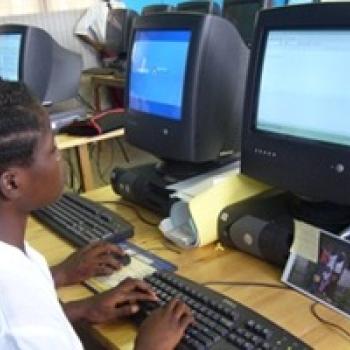Publication Information

Energise your computing lessons and delve into data from across the world.
Data Power supports learners to strengthen their data handling skills and consider how data can be used to improve lives. Learners take on an investigative role by collecting, analysing and visualising data about the lives of children in different countries. Get creative with computing.
Created in partnership with Young Lives and with the support of Computing At School and the University of Oxford's IT Services.
Data Power can be downloaded from the Oxfam Education website. The resource includes:
Teachers’ overviewIncludes an introduction, curriculum links and an overview of each unit
Unit 1: Thinking about dataConsider what data is collected about our daily lives and how it is used. How do you spend your day?
Unit 2: Data about Young LivesVisualise and compare “time use” data from young people in Ethiopia, India, Peru and Viet Nam
Unit 3: The power of dataRaise awareness about inequality. Interpret “well-being” data from different countries and create striking infographics.
SlideshowFor use with units 1 to 3
Evaluating your learningAssess learning at the end of each unit
Video background notesAdditional information, discussion ideas and a glossary to accompany the video Talking about Young Lives
Time use and gender spreadsheetFor use with Unit 2
Urban and rural time use spreadsheetFor use with Unit 2
Measuring well-being spreadsheetFor use with Unit 3

Energise your computing lessons and delve into data from across the world.
Data Power supports learners to strengthen their data handling skills and consider how data can be used to improve lives. Learners take on an investigative role by collecting, analysing and visualising data about the lives of children in different countries. Get creative with computing.
Created in partnership with Young Lives and with the support of Computing At School and the University of Oxford's IT Services.
Data Power can be downloaded from the Oxfam Education website. The resource includes:
Teachers’ overviewIncludes an introduction, curriculum links and an overview of each unit
Unit 1: Thinking about dataConsider what data is collected about our daily lives and how it is used. How do you spend your day?
Unit 2: Data about Young LivesVisualise and compare “time use” data from young people in Ethiopia, India, Peru and Viet Nam
Unit 3: The power of dataRaise awareness about inequality. Interpret “well-being” data from different countries and create striking infographics.
SlideshowFor use with units 1 to 3
Evaluating your learningAssess learning at the end of each unit
Video background notesAdditional information, discussion ideas and a glossary to accompany the video Talking about Young Lives
Time use and gender spreadsheetFor use with Unit 2
Urban and rural time use spreadsheetFor use with Unit 2
Measuring well-being spreadsheetFor use with Unit 3

